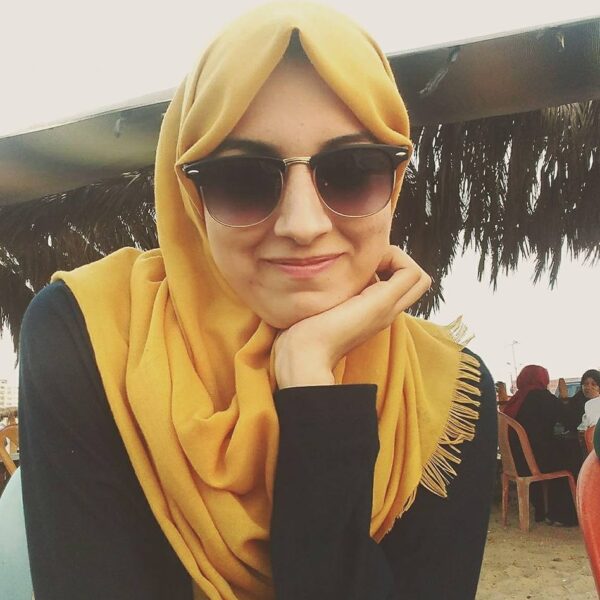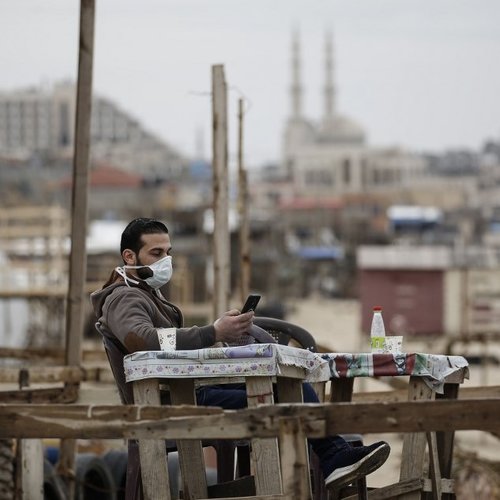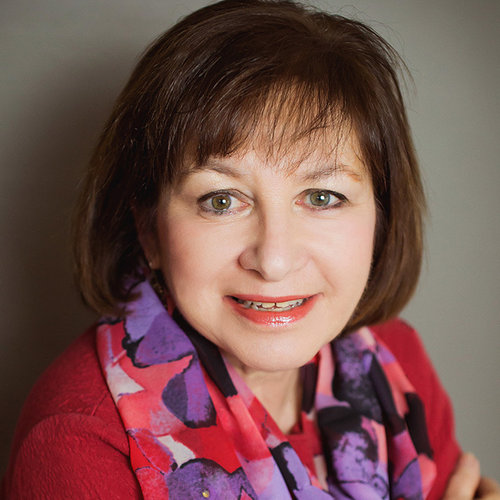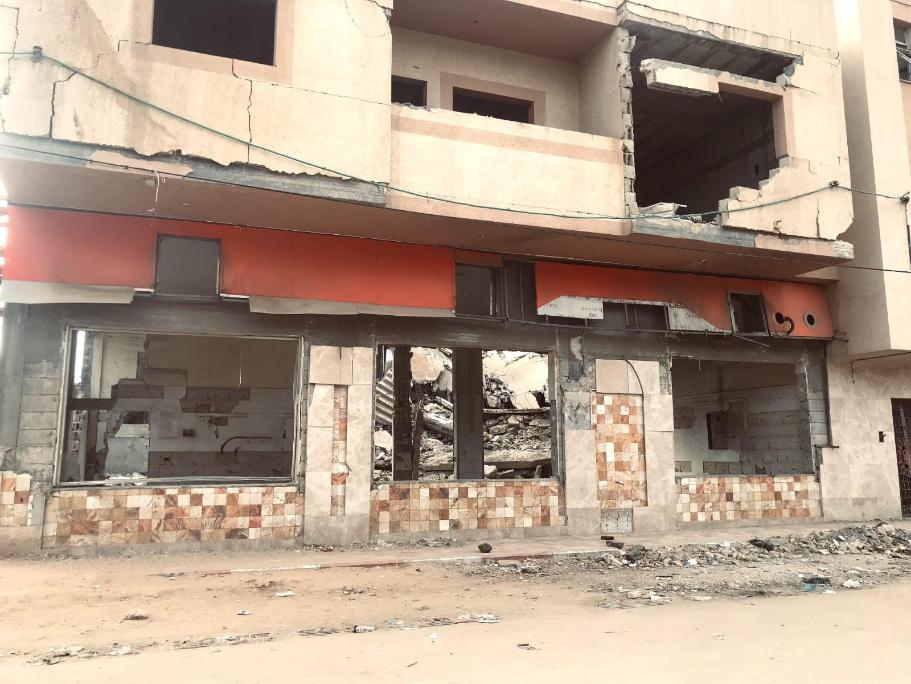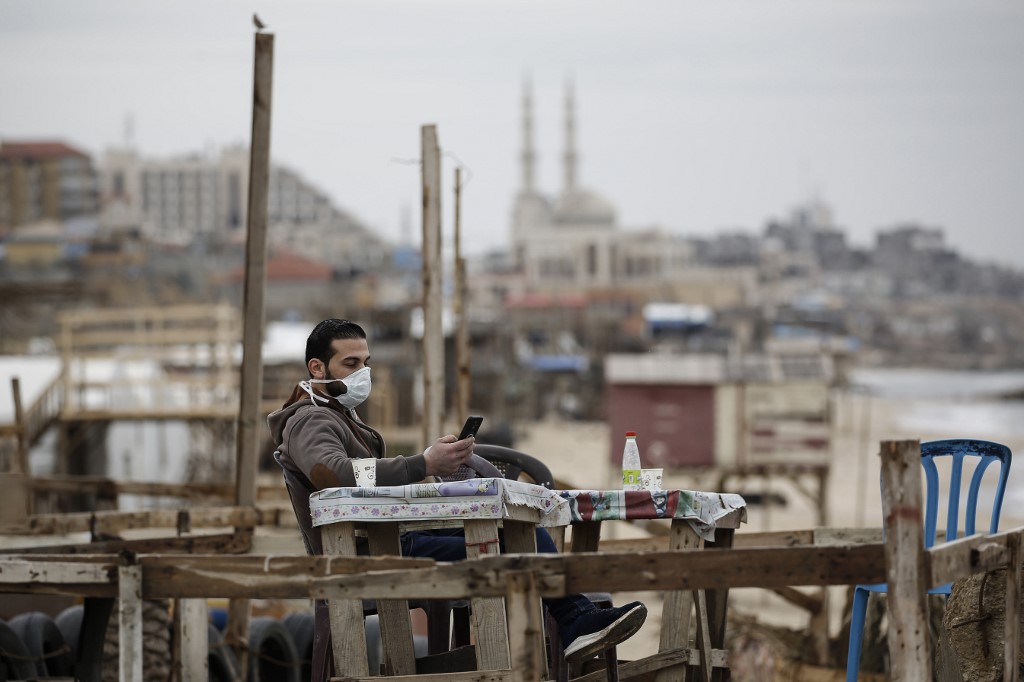
Every night before bed, I pray to God for my people’s safety from the coronavirus pandemic. I am scared as never before. The virus has swept across the world, and it seems inevitable it will penetrate the Gaza Strip at some point.
The precautions taken by our Ministry of Health have worked so far: since March 15, all persons entering Gaza have been immediately quarantined, whether or not they test positive for COVID-19. To date, only 20 people with active infections have been confirmed, with 16 now having completed their isolation and discharged.
But as the hard-hit countries begin to open up, more outbreaks are expected, and the World Health Organization has projected it is just a matter of time before it manages to spread into Gaza. Our ministry projects a worst-case scenario of eight infections per 1,000 residents. That is 16,000 people! Even in normal times (if you can really say there is a “normal” in Gaza), we suffer from a shortage of medicine and health care equipment. Gaza has one hospital designated for coronavirus patients specifically and one other for quarantined patients with underlying conditions. We have no more than 80 or so ventilators total.
In addition, electricity blackouts occur for hours every day, which in turn makes it impossible to clean our water supply. According to the United Nations Relief and Works Agency (UNRWA), 97% of Gaza’s water is unsuitable for consumption or even hygiene. In fact, more than a quarter of all reported disease in Gaza is caused by poor water quality and access. And yet, one of the most effective ways to prevent COVID-19 is regular handwashing with clean water and soap..
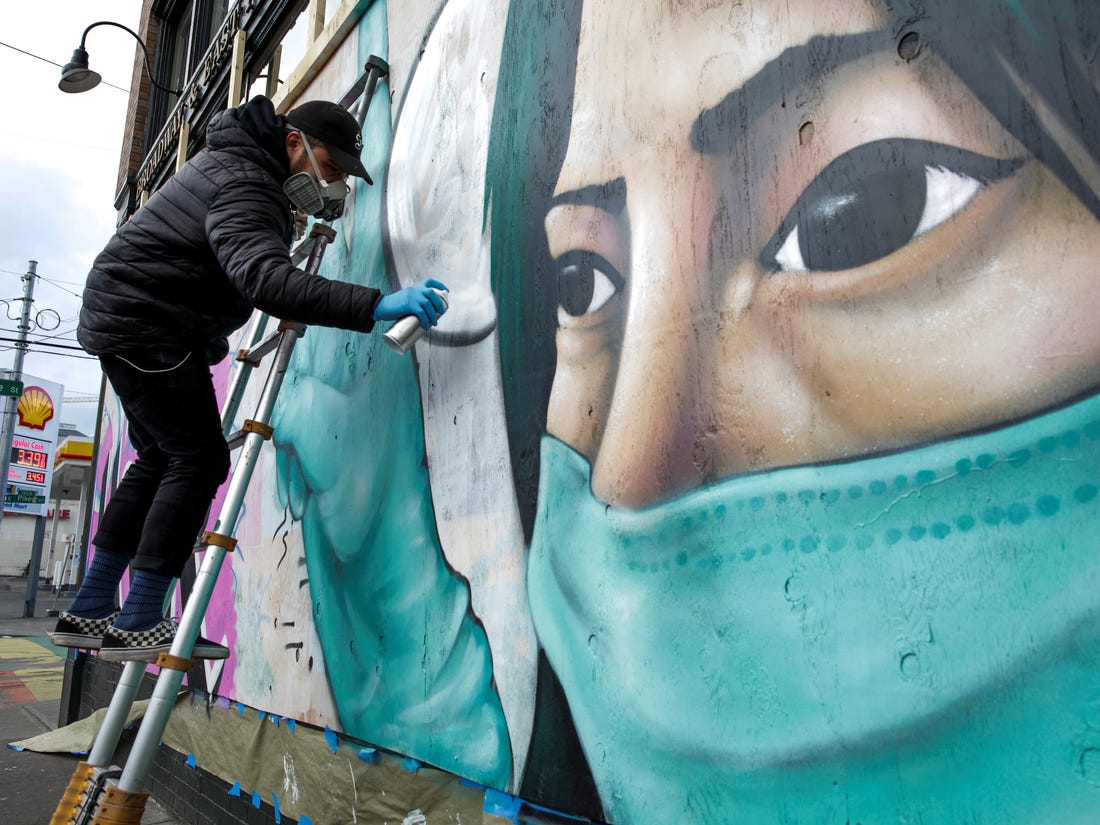
If the worst-case scenario occurs, the situation in Gaza will be catastrophic.
Gaza is one of the most densely populated areas in the world. Two million people live on only 365 square kilometers, and within that are areas of hyper-density. Al-Shati Camp is an example, with 100,000 people squeezed into just two square kilometers.
Families in Gaza typically have five to seven members, and our homes are attached to or on top of one another. Therefore, we fear the virus will spread rapidly once it gets a foothold.
In the past, I feared I would lose one of my loved ones in an Israeli attack, but now I fear losing them to this pandemic. I know death is inevitable, but I cannot accept the idea of losing my loved ones without a farewell, without giving them a last kiss on their cheeks, without a last look into their eyes.
Two months ago, I discussed the tragedy in Italy with my work colleagues, and they wondered if Gaza, blockaded for 14 years by the Israeli occupation forces, would be the safest spot. But despite the limitations on our movement, those who are approved can travel in and out. Even after Egypt identified its first case of coronavirus in February, followed by Israel and the occupied West Bank in March, a steady stream of travelers moved back and forth. I felt anxiously waited for the authorities in Gaza to close our borders. I couldn’t understand why they delayed taking strict precautions. Universities and other public institutions closed; why not the borders? The authorities finally restricted our borders in the second week, but not before nearly 2,800 people returning to Gaza were allowed to quarantine at home, many of whom violated protocols.
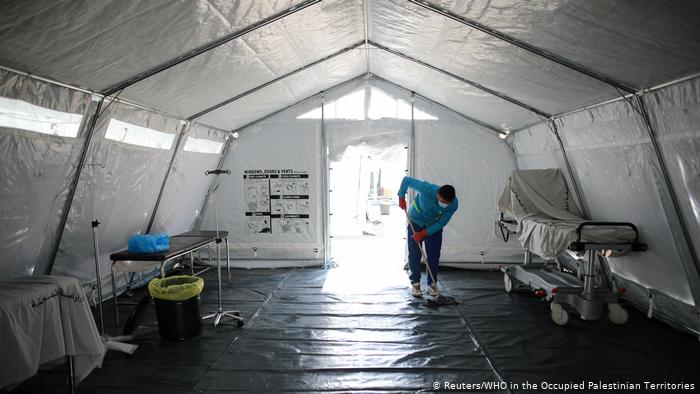
Today, 15 quarantine centers have been set up—most of them schools or hotels, including our most glamorous ones. “Residents” currently number 1,574. In the schools, six people are quarantined in each small classroom, with space for just one meter between them. Aren’t the authorities aware such crowding won’t protect people if one of them is infected with the virus? Aren’t they aware that people can get the virus by sneezing or touching any surface or object in the classroom? However, the problem is not just the government’s, but also with the people themselves. For example, during Ramadan, many of my people are disregarding the dangers, quickly abandoning their original cautiousness and flooding to the sea and restaurants.
The parents of a friend were quarantined in a school for 21 days. Women gathered to chat, and men played chess, football and other games, ignoring the need for social distancing. Her dad noticed one man who stood apart, always used cleansing his hands with sanitizer and wearing a mask. The others believed he overly concerned, but he was doing the right thing, since the government couldn’t provide a room for each of them.
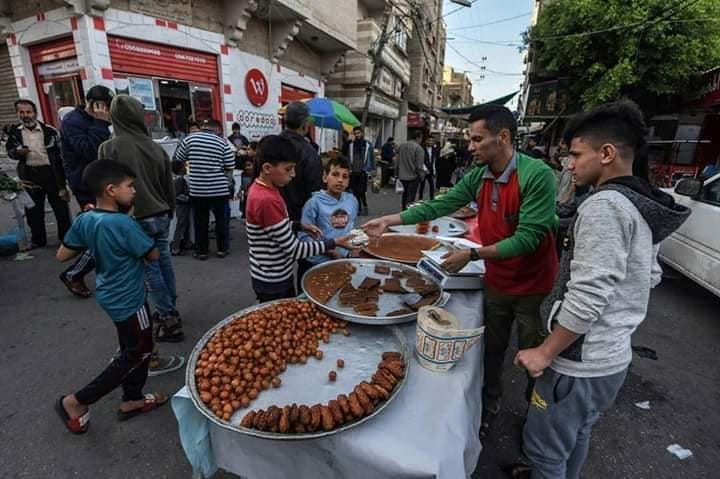
I was not shocked by this. Most Gazans are too cavalier about the virus. When first cases were reported and the mosques were not yet closed, many people still crowded in—my 65-year-old dad among them. My mum and I attempted to convince him of the danger to his health; he smokes heavily and has lung disease. However, he didn’t listen to us, justifying his actions by saying, “The situation is going fine in Gaza because the two people infected with corona were quarantined in a school immediately on their return.”
When seven other travelers were later found to be infected, the government shut down the mosques until further notice. I was happy they made this decision and that Dad would stay at home. He hoped they would re-open during Ramadan, the Muslim month of fasting and worship, and was sad when they were not. But life is as important as religion. Prophet Mohammed (peace be upon him) said in the Sunnah (the second-most-important religious source in Islam after the Quran, “There are two blessings in which many people incur loss. (They are) health and free time (for doing good)".
As Muslims, we know the term "quarantine” from when it was first implemented, when a plague swept the Levant in the 6th century and the prophet’s followers adhered to the Sunnah’s instructions to stay at home: “I (the prophet’s wife, Aisha) asked Allah's Messenger about the plague. He told me that it was a punishment sent by Allah on whom he wished, and Allah made it a source of mercy for the believers, for if one in the time of an epidemic plague stays in his home patiently hoping for Allah's reward and believing that nothing will befall him except what Allah has written for him, he will get the reward of a martyr.”
The prophet also orders us not to leave or enter a country during a pandemic in this hadith (saying): “If you get wind of the outbreak of plague in a land, do not enter it; if it breaks out in a land in which you are, do not leave it.”
However, my people don’t care about this, and I understand why. They are no longer afraid of death. They have lived through three brutal wars, as well as other military escalations lasting a few days, from which we didn’t expect to survive. But it is this refusal to take precautions is that scares me. My male work colleagues often gather in the house of one of their friends, watching a movie, playing cards and barbecuing, trying to forget for a while what’s occurring in the world. My best friend, Reem, is surprised when her married sisters visit their parents’ house with their sons and daughters. She refuses to shake hands with or kiss them. My mom visits my married sister from time to time because my sister refuses to pay a visit, fearing for her 3-year-old daughter, Leen, whose gets sick easily. Some of my friends go to the beach twice a week for a bit of escape. And in my neighborhood, young children play in the streets, adults play football or sit together playing games on Playstation, and women gather in one of their houses to socialize.
What is even worse is Gazan companies that decide for their employees; for example, my friend Reem is required to work in the office, despite the fact that she could easily do her duties online. When I visit Reem in her office, I saw employees shake hands and hug. I smiled when I met Reem for the first time after a long time of no contact and kindly asked her to practice social distancing. She laughed and responded," I miss you, so I want to hug and kiss you." I told her, "I miss you more than you imagine, but we should do this for our families."
The current lack of serious illness and death from COVID-19 in Gaza is thanks to the mercy of God. I wonder if this mercy will continue. I pray for our safety.

